
Honeyblood’s Stina Tweeddale: “Being a songwriter is like any other skill. The more you do it, the better you get.” Photo: Craig McIntosh
Heading back out on the road to celebrate its tenth anniversary, Stina Tweeddale shares the story behind her band’s debut
Both artistically and commercially, anniversary reissues are an important opportunity for musicians. Providing them with a rare chance to reconnect with their past, it also means audiences can see old favourites performed live once again, without any pesky new material getting in the way, and indulge in expanded access-all-areas releases. 2024 marks the tenth anniversary of Honeyblood’s self-titled debut album, a milestone that Stina Tweeddale is celebrating with a special tour. Then a duo of Tweeddale and drummer Shona McVicar, it was recorded with renowned producer Peter Katis (Frightened Rabbit, Interpol, The National) and released via FatCat Records. Songs like the melancholic Bud, dashingly catchy Killer Bangs and yearning shoegaze of Biro introduced listeners to Honeyblood’s distinctive blend of infectious melodies, pop sensibilities, and gritty, fuzzed-out rock.
As Honeyblood embark on their five-date UK tour, performing the beloved debut album in full, we head down memory lane with Tweeddale…
Read Stina Tweeddale’s Diary Of A Songwriter
How did the reissue come about?
“I thought it’d be a good idea to do the tour and then I got in touch with FatCat as well, and they’d already been thinking about doing a reissue. It was nearly a year ago when we had our initial conversation about it. I did not think that far ahead that I would be doing interviews about the record and having to do some sort of therapy session about my past and how I feel about it now. It’s super weird, it’s been nice to think about but it definitely has felt like a very low-key therapy session.”
We’re guessing you probably weren’t thinking that you’d still be talking about these songs and touring this album when you were writing it over a decade ago?
“I didn’t think about it at the time of making that record. No way. I did think about it in hindsight when I made the second one, because then you’re like, ‘Oh, wow, I now get to make a second one.’ But when you make your first album, you don’t know what’s up the road, so you’re throwing everything at the wall to see what sticks, because you don’t know if you’ll ever get the opportunity again.
“So many bands just make one record and that could have quite easily been what happened. But we’re making a fourth one right now. When it gets really difficult, I’m always like, ‘This next record is going to be the last record I make.’ But then I make another one.”
Is it enjoyable to relive memories of writing and recording the album?
“They take on a different meaning now and it’s a great feeling, actually. Before it gets to the point where an album comes out, the songs have been with you for a long time. Especially that first record, some songs had been with me since 2011, and then the album came out in 2014. Honeyblood started in 2012, officially, but I had Biro and No Spare Key a year before.
“I’d been in a band previously and I was secretly writing songs by myself, not showing them. Autobiographical writers, it becomes very emotionally tied to you in the moment that you’re writing it. Then, once you’ve played it 20 times and you’ve played it with other people, showed it to your band or a producer… that’s quite nerve-racking, because that’s the first person who’s really listening with an intent ear.
“Then you have the song for a while, you play it, and then you record it, and then you think about it critically… you play it live, then you have people who listen to it. Then those people say, ‘I love your song, it reminds me of a time in my life…’ Then the thing you wrote about disappears and it’s the disconnect of your own experience and all the other things that come in between. You get less emotionally attached through a memory of what the song was about and it’s more about the journey and life of the song.”
That’s an interesting adventure for the songs, and you…
“That’s how I feel about those songs now. So much time has passed. I’ve played loads of them so many times and I’ve sat with people who have the album and they’ve told me stories about songs. People tell me stories about songs that, when I wrote them, were very personal, but then it becomes about them. Then they go and get tattoos of the lyrics and all that stuff. Then it doesn’t become so connected to my own experience, it becomes bigger than that.”

Honeyblood’s Stina Tweeddale: “I wanted there to be an extremely feminine theme that runs through everything.” Photo: Craig McIntosh
Do you have any particular examples of a song that meant something completely different to a listener?
“So many, this album especially, in good ways and bad ways. People are nicer than me, I think. The song All Dragged Up is sort of a diss track of someone else, but it could also be about holding on to youth yourself, and how that’s a rebellious act. I had loads of people tell me that it felt personal to them.
“One story sticks in my head, which is still pretty emotional… The song Bud was originally written about being in a relationship with someone who was grieving. Someone got in touch with me and wrote me a very heartfelt message saying they sing this song to their baby who had been born premature, and it was sort of a touch-and-go situation.
“That’s something that has stuck with me the whole time. To be honoured that way in someone’s life is crazy. I don’t even know where to place that. That made me think about that song in a completely different way. It felt like a full circle situation with that one; it’s a pretty heavy song on one side and then quite uplifting.”
How many of the songs from the debut were written before the band existed?
“Biro was written, No Spare Key too. I can’t remember which was the first one, but it was one or the other. Then I don’t think I had any other ones until I’d hung about with Shona. We started hanging out in rehearsal rooms. Bud and Super Rat were next, and Killer Bangs I think. The last one that was written for this record was Fall Forever.”
And what was it about that relationship and creative chemistry with Shona that was so fertile for your songwriting?
“Me and her were in bands previously to this and we were both the only girl in the band. We were into the same music, which was amazing, and we loved hanging out with each other, which is half the battle. She’s great because she was really into songs. I meet loads of drummers who are not into songs. They’re into drums.
“You can kind of teeter between both, but I think there’s always one that takes precedence. Debbie [Knox-Hewson], my drummer now, she is technically a really amazing drummer, but she definitely is into songs as well. It’s probably what I prefer as a songwriter.”
How did that help the music?
“Shona, she’s got a real style of playing that I think is perfect for what we were creating at the time. It gives a sort of charm to this record that then maybe got lost in the second one.”
“I loved that about working with her, because the band I was in previously wasn’t like that. I think to be someone who really love songs, and loved to sing along with them in a way where it’s like, ‘I just really love this song,’ that then builds how the song develops. It puts the song at the forefront of what you’re trying to do sonically. Rather than trying to add all this amazing technical skill.”
As you say, that simplicity gives the record its charm, rather than being overproduced…
“There was nothing like that on this record. It’s the opposite. Even when we went to record it with Peter [Katis – producer], loads of the songs weren’t recorded with a click track. They were just played and it speeds up and slows down naturally. It was two people who liked the songs playing together.”
Did she have any input in the lyrics and melodies?
“Nobody does, just me. It’s a strange one because she wasn’t actually around. She was actually out of the band. She went to do a year to finish dental school in 2012/2013. I actually had another drummer in who was from New Zealand, Rah Morris. She actually was a guitar player, and then was like, ‘I’ll play your drums.’
“With her I wrote Killer Bangs and Choker. Shona wasn’t in the band technically then, but came back and then we reworked them. Killer Bangs is about Shona leaving the band and then coming back. So I’ve technically had four drummers in the in the history of Honeyblood.
“Usually I would write the whole thing all the way through and then come into a practice room and be like, ‘This is what I’ve done.’ and maybe some of the structure would change. Now, I don’t do it that way, I work completely by myself and do everything. I’ll loosely programme the drums to what I want it to be like, and I have been doing that since partway through Babes [Never Die].”
How was it different on the first album?
“It was written on acoustic guitar, sung along to and then I would just remember it. I wouldn’t even record it. I didn’t even have a phone where I could record things. I had an MP3 player that I could record the ideas just so I wouldn’t forget them.
“Then I would go into the rehearsal space, and I would play them and she’d be like, ‘Cool, what about this?’ and then she would play along. Then we would develop the structure if there was anything that didn’t feel right, or switch things around, or shorten verses or choruses, or come up with a musical interlude part. Usually, that sort of stuff was made in the studio.”
With Peter involved?
“My whole experience with Peter set me on the course that I went on. I feel very lucky that that was my first experience of making a record. We sent him live recordings of our rehearsal space. We got a pal to help us and we set up a microphone in the middle of the room. Then we played the songs. When he messaged back, he was like, ‘Cool, that’s great, we’ll just do that then.’
“He didn’t even change a single thing from the ideas that we initially had. He wanted us to be true to what we were and I think, for a debut album, that is a really good way to look at it. I got a little bit more experimental as it went on, especially in the studio, but that birth of what we were starting to do is a very pure record.”
So was it mainly recorded live?
“They were recorded live, me and her playing together and then I overdubbed vocals. There is a little bit of cheeky bass in there on some of them, which was recorded by the bass player from the Augustines, Eric [Sanderson]. He was shadowing in the studio, he was friends with Peter and a great bass player. He was like, ‘I’ll pop some bass down,’ which is funny because everybody thinks that we don’t have any bass. There’s also some keyboards in there, but they’re very minimal things that were overdubbed.”
You used the word “pure” – in terms of your lyrics were/are you someone who likes to capture a moment or someone who likes to heavily refine until you get to the finished version?
“Reflecting on the lyrics of that record. I’m like, ‘What did they mean? What was I trying to say?’ They’re very heartfelt. I would say that I wrote how I felt at the time a lot on that record. It was very open. Now I do follow the same path as that, but I’m such an editor at this point. I have to get things to a standard and I feel like I critique myself a lot more harshly now. Then I would have just been like, ‘That’s the song. That’s how it is.’”

Honeyblood’s Stina Tweeddale: “When you make your first album, you don’t know what’s up the road, so you’re throwing everything at the wall to see what sticks.” Photo: Craig McIntosh
Why has that changed?
“Just getting better, progressing. Being a songwriter is like any other skill: the more you do it, the better you get. If people are like, ‘Oh, you’ve written your best song 10 years ago,’ I’m like, ‘I can’t have,’ because of the nature of learning and developing. [For] everybody else, their skills get better as they go on, and that’s how I feel about songwriting – I feel like you can only get better, I don’t believe that you go past a point. I don’t know any songwriter that that’s ever happened to. They may have a favourite song and they may have most-loved famous songs, but I think they would get better as they progress.
“I still love loads of things that I’ve come up with in the past but you develop and change and your style changes and what you’re into changes. There’s loads of stuff on that record where I’m like, ‘Oh, that’s pretty good actually,’ but I would never do it now – melody-wise, or lyrics, or whatever.”
Which songs from that album are you proudest of?
“I love that people love Biro so much. Like most of these songs, I feel the tempo is slow and the lyrics and stories are random, but it really spoke to a lot of people. It’s probably the one on that record that people talk about the most. It wasn’t a single. It maybe was at the very end, I think it went to radio, but we made no music video for it or anything like that.
“It really was about this transition from my old band, Boycotts. I was pretty sure that I was going to quit my band. We had been semi-successful in Scotland. We had done things that you would expect a band who is on the way up to do. We had done a run of festivals, released an EP, supported bands like Cage The Elephant, The Script, and Cursive… We played T in the Park. We had signed a publishing deal and all those things, and were on our way to do something, and I just turned around like, ‘I don’t want to do this.’”
Were you writing songs together?
“Yeah, we were writing but it was very split four ways. I didn’t play guitar in that band. I just wrote the melody and lyrics, I was the front person. Just in the middle, I was just like, ‘I don’t want to do this anymore.’ We’re still really good friends, all of us, and they’re really supportive. They’ll come to the Glasgow anniversary show.
“I’m writing a record now and I’ve written this whole record by myself. There’s one song that I had from a past session, a co-write, and another one that I’ve made with a producer. It’ll be the most the most creatively isolated I’ve ever been and it’s the happiest I’ve ever been.
“So at that point, I started playing the guitar again after years, and then I was just like, ‘Wait a minute, I got to go,’ and I quit impulsively. They knew it was coming. I’d already met Shona at that point, and we were meeting in bars and hanging out and swapping music. Our bands played together at gigs and we were becoming really close. Then we had a couple of run-throughs of stuff. I was like, ‘Can I show you some songs?’ And then I just turned around to the boys and I was like, ‘Goodbye’.

Honeyblood’s Stina Tweeddale: “There’s loads of stuff on that record where I’m like, ‘Oh, that’s pretty good actually,’ but I would never do it now.” Photo: Craig McIntosh
Why did you feel the songs weren’t right for that group?
“The idea behind the first record especially, and probably part of the second one as well, it was a running theme… Even the name Honeyblood; my idea behind the concept of that was I wanted there to be an extremely feminine theme that runs through everything. It’s sort of heavier, guitar-driven alternative music, but this absolute feminine feeling is strong and powerful, and fun and whimsical at the same time. Delicate, but also kickass.
“I wasn’t able to do that when the music behind me was more masculine. I love the boys, they’re amazing musicians. We made some cool songs, but having creative control and artistic control of a project became super important to me, and still is. Every decision I’ve ever made to part ways with a drummer, or part ways with a label, or anything that happened in the past, always came from a place of me wanting to protect my songs and integrity as a creator. It’s got me in loads of trouble, but I have to keep going with it.”
To sum everything up, what does it mean to be celebrating this album again and playing these shows?
“My idea for this was to really not get bogged down with the past, because I feel like that can be counterproductive. So far, it makes me inspired, it makes me reflect on my journey and makes me inspired to continue to the next bit. I look back and I’m like, ‘That is actually quite a massive mountain I climbed.’ You don’t think about that at the time, so this may be the only opportunity you get to do something like that. You’re always pushing forward. You never get to enjoy it at the time, which is the sad thing about it.
“We’re even getting to support the Foo Fighters again, after nine years. At the time of doing it, there was no way that I enjoyed that moment. You’re literally petrified, there’s so much going on and you’re being hit in the face with the intensity of the moment. But you should really be like, ‘Wow, what an amazing thing I just got to do.’ I think anybody that has achieved something, maybe we should learn as human beings to look back and be like, ‘Good job.’
And this gives you the chance to do that…
“I keep on looking forward to these gigs and I really want to just have a great day. When this record came out, it was a bit bittersweet, because Shona was away two months after and it really did become difficult. So that was overshadowed by that for a wee bit.
“But, you know, shit happens. That stuff happened to me later down the line as well. So I think you need to have these moments where you look back and you’re like, ‘Wow, that’s an amazing achievement. I can’t believe I’m still here. I can’t believe people still want to listen to this record.’ That album didn’t fizzle out into nothing. It went onto people’s shelves, and it went on to their record players, and they still listen to them, and they’re quite happy to come and see me sing. It’s forcing me to stand back and be like, ‘This a great thing that you’ve done.’”


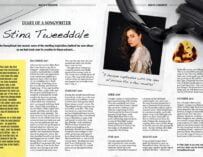
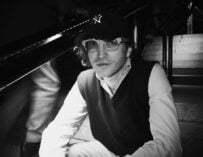

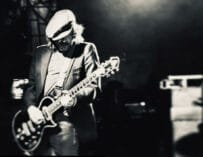


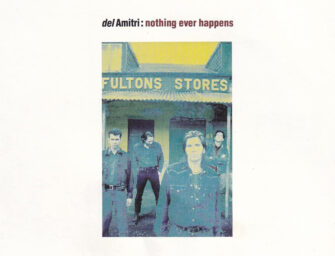

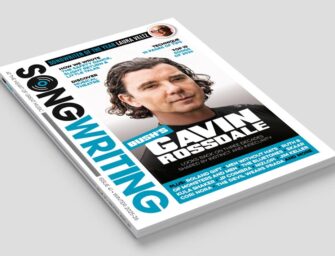
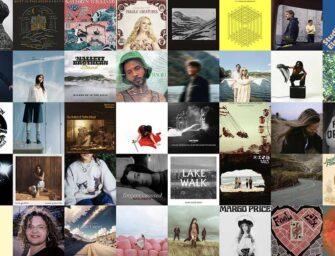




















Related Articles